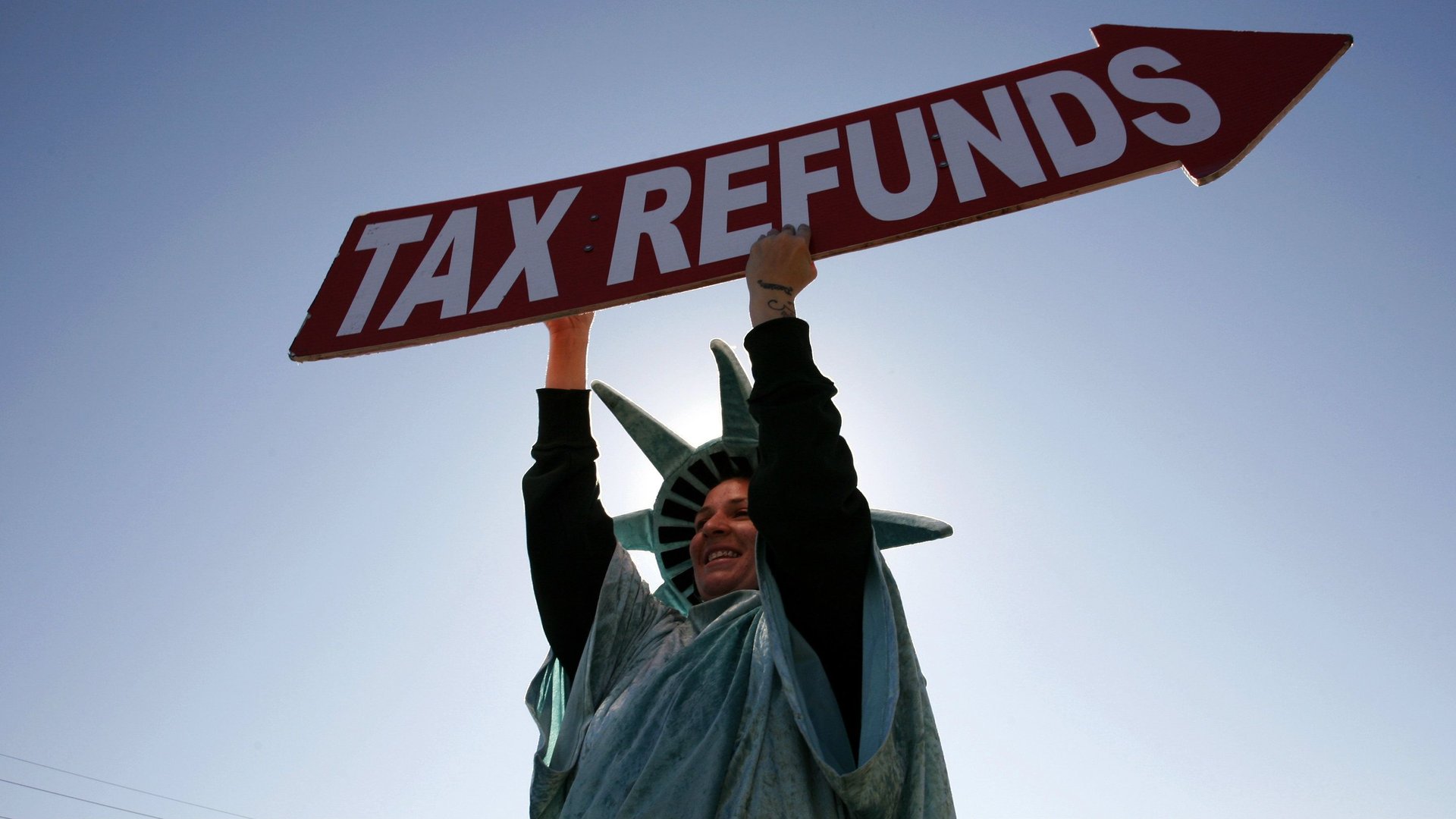Gifted a $1 trillion tax windfall from Congress, US companies pledge $2 billion for workers
Donald Trump’s presidency has been marked by turmoil, and his approval ratings are low. But US CEOs seemed eager to show their support for his first major piece of legislation, the “Tax Cuts and Jobs Act” that cleared Congress on Wednesday (Dec. 20). A clutch of big US banks and telecoms pledged to hand out millions in bonuses off the back of tax reform.


Donald Trump’s presidency has been marked by turmoil, and his approval ratings are low. But US CEOs seemed eager to show their support for his first major piece of legislation, the “Tax Cuts and Jobs Act” that cleared Congress on Wednesday (Dec. 20). A clutch of big US banks and telecoms pledged to hand out millions in bonuses off the back of tax reform.
In carefully crafted announcements released within minutes of Trump’s White House press conference, banks and telecoms announced commitments of more than $2 billion in bonuses, donations, and investments (this calculation doesn’t account for wage hikes, which were impossible to quantify given the information available). In press releases and on Twitter, the companies praised the tax bill for its salutary effects on workers’ wages.
- Comcast said based on passage of tax reform it would award special $1,000 bonuses to more than 100,000 eligible “frontline and non-executive employees.”
- Wells Fargo said it would raise hourly pay to $15 and aim to give $400 million to community and non-profit organizations next year, due to the tax bill. (That’s just 2% of the $3.7 billion windfall the bank is predicted to get from the tax bill next year, the New York Times’ Binyamin Appelbaum points out).
- Cincinnati’s’ Fifth Third Bancorp said it was raising about 3,000 employees’ minimum wage to $15 an hour and would pay out a $1,000 bonus to 13,500 employees. “The tax cut allowed the Bank the opportunity to reevaluate its compensation structure and share some of those benefits with its talented and dedicated workforce,” according to a statement.
- Washington Federal announced the tax reform legislation will accelerate its “strategic investments in its employees, client service capabilities and community development funding” with employees in good standing earning less than $100,000 per year getting a 5% salary increase.
- AT&T declared tax reform would increase its capital spending by $1 billion while providing $1,000 bonuses to more than 200,000 US employees.
- Boeing said it would spend $300 million on employees and charities, without being more specific:
Critics charge the handful of companies pledging money this week is a political ploy to distract from the vast majority of benefits flowing to shareholders rather than workers and the middle class.
The amount announced so far is a small fraction of the total tax savings the bill is expected to hand to corporations in the coming years. Overall, lowering corporate taxes is expected to save companies $1 trillion over the next decade.
Earlier this year, the White House Council of Economic Advisers (CEA) said that dropping the corporate income tax rate to 20% (the new bill makes it 21%) would increase household incomes by at least $4,000 annually. Most economists, including Kimberly Clausing of Reed College, dispute those “wildly optimistic numbers,” arguing that there’s a tenuous relationship between lower corporate taxes and higher wages.
Economic theory suggests that taxes on corporate profits—including benefits from tax cuts—are mostly borne by shareholders. “Deficit-financed corporate tax cuts are more likely to hurt workers than help them,” Clausing wrote in an analysis of the tax reform bill.
Still, these CEOs may be the first of many to attribute raising wages (which have been recovering as the labor market tightens) to Washington policies. Several corporations have made a point of giving Trump credit for job and investment announcements: Dow Chemical, Carrier, IBM and Softbank have all done so in the last year (often referring to plans or investments that predated Trump). “Now, whenever an executive raises wages, they will make sure to thank tax ‘reform’ to try to take some heat off Congress, which has just given them a truly enormous Christmas gift,” Clausing wrote by email.
Companies making the Dec. 20 announcements tied to the tax bill were likely planning these moves as well. “I would be surprised if the changes were due to tax reform, given how quickly the changes were announced,” said William Gale, co-director of the Tax Policy Center, a joint venture between Brookings Institution and the Urban Institute. “But I certainly understand why the companies might want to say it was due to tax reform.”